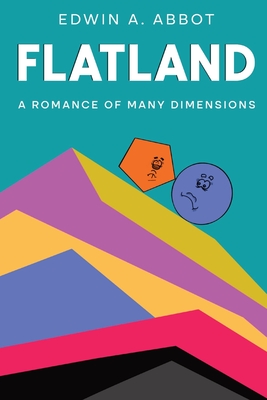Section 20: How the Sphere Encouraged Me in a Vision.
bySection 20 – Flatland opens with the narrator returning home, carrying the weight of experiences that he knows cannot be shared openly. Faced with his wife’s concern and her limited understanding of dimensions, he crafts a simple story involving a trapdoor to explain his disoriented state. Her unquestioning acceptance comforts him only slightly, as he begins to realize how lonely it feels to possess knowledge that others cannot grasp. The silence of night offers him refuge, and he retreats inward, desperate to mentally revisit what he had witnessed in the Third Dimension. That internal exploration is cut short when sleep overtakes him, leading to another encounter with the Sphere. In this dream, the narrative transcends even further, moving away from Flatland to explore a realm stripped of dimensions altogether.
The Sphere presents Pointland, a conceptual place where existence is reduced to a single, dimensionless point. In this space, one being lives without awareness of anything outside itself, utterly incapable of imagining companionship or movement. It is not imprisoned by walls, but by its own sense of perfection and completeness. The narrator observes as the Point declares itself to be the entirety of existence, mistaking external voices as echoes of its own thought. This tragic self-absorption offers the Sphere a powerful metaphor for the danger of complacency. The Sphere suggests that many in Flatland—and by extension, many in our world—live in similar states of intellectual confinement, satisfied by narrow truths. For the narrator, this vision is both a warning and a mirror. He begins to wonder how many others in Flatland unknowingly dwell in their own Pointlands.
As the dream unfolds, the Sphere uses this lesson to impress upon the narrator the importance of intellectual humility. Knowledge is not just a matter of seeing more, but of understanding that more exists beyond what can currently be seen. The Point, locked in its solipsism, is a symbol of what happens when curiosity dies and comfort becomes the only goal. The narrator awakens troubled, realizing that while he has glimpsed a greater truth, others may never even know to look. This insight kindles a quiet determination in him. Though he may be alone in his understanding, he now sees it as a duty to pursue truth, even if others resist or reject it.
In many ways, this chapter serves as a profound meditation on human nature. The parallels between Pointland and real-world ignorance are hard to ignore. People often resist new ideas not because they lack intelligence, but because comfort in the known is easier than confronting the unknown. This theme continues to echo throughout the story, urging readers to consider their own intellectual limits. Can we, like the narrator, imagine that our reality might be a shadow of something larger? Or do we cling to familiar beliefs, as the Point does, unwilling to entertain the possibility of a broader truth?
The Sphere’s lesson is not just about dimensions—it is about growth. It challenges the narrator and the reader to recognize the difference between perception and reality, and to find courage in admitting what we do not yet understand. The world may appear flat only because our minds are not yet trained to see otherwise. This realization is both liberating and terrifying, and it shifts the narrator’s sense of purpose. No longer content with silence or complacency, he resolves to find a way—no matter how difficult—to awaken others to what he now knows. The dream fades, but its meaning lingers.
By the end of the chapter, the narrator is left to ponder how best to communicate ideas that defy traditional frameworks. The encounter with Pointland becomes a symbol he cannot shake, an allegory of how even intelligent beings can live entire lives unaware of the deeper realities surrounding them. His world, once simple and bounded, has expanded beyond measure. The question now is whether he can help others make that same leap—or whether they will remain, like the Point, forever convinced they are alone in the universe.


